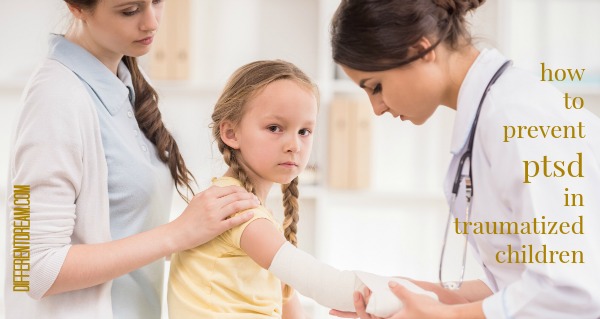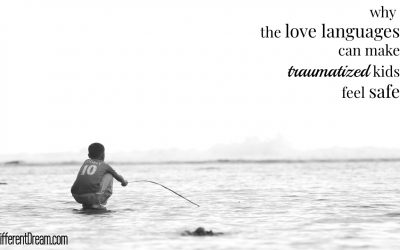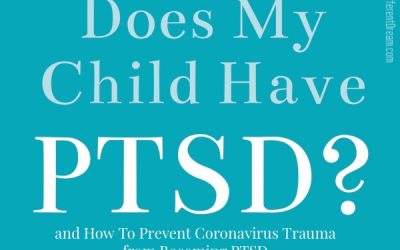How to Prevent PTSD in Traumatized Children

Welcome to the tenth post in a series about PTSD in children. The previous post in this series summarized several effective therapy methods for children with PTSD. The new treatment methods provide hope that children can be healed of PTSD and learn to manage the vestiges that remain after effective therapy. But wouldn’t it be wonderful if adults took measures to prevent PTSD in children, so treatment would be required less often? This post reviews some of the techniques parents and other adults can use to lower the risk of PTSD developing in our kids after they experience a traumatic event.
Prevent PTSD by Encouraging Resilience
Resilience is the elusive quality attributed those children who experience trauma and are able to overcome it. For decades, child psychiatrists and psychologists have been asking the question that may be buzzing in your brain right now: What makes some kids so resilient? Dr. Bruce Perry and Maia Szalavitz asked that question in their book Born for Love. They profiled a young woman who is the daughter of heroin addicts. Her seven younger siblings have all had run-ins with the law and struggle with addictive behaviors. But this young woman is married, has two children, and holds a good job. She and the authors attribute her resilience to several factors:
- First she has an innate, empathetic awareness that allows her to tune into and focus on loving moments.
- Second the constant state of high alert, or hyperarousal, she developed in childhood while caring for her siblings, has made her aware of the feelings of others so she knows how to avoid or defuse potentially dangerous situations.
- Third she is intelligent enough to see cause and effect clearly and solve problems creatively.
- Fourth her intelligence attracted the attention of caring teachers and other people outside the home who supported and encouraged her.
To read the rest of this post, visit the Key Ministry blog, Church4EveryChild.
Part 1: Writing About PTSD Was Not on My Bucket List
Part 2: Childhood Trauma by Any Other Name Is Still Traumatic
Part 3: 10 Myths about PTSD in Children
Part 4: What Causes PTSD in Children
Part 5: A Look Inside the Brain’s Response to Childhood Trauma
Part 6: Why the Spotlight Is on PTSD in Children
Part 7: Childhood PTSD Symptoms in Tots, Teens, and In Between
Part 8: Why and How Childhood PTSD Is often Misdiagnosed
Part 9: Effective Treatment of PTSD in Children
Part 10: How to Prevent PTSD in Traumatized Children
Part 11: How Parents Can Advocate Effectively for Traumatized Children
Part 12: 4 Reasons Traumatized Kids Need Mentally Healthy Parents
Part 13: Clinging to Faith While Parenting Children with PTSD
Do you like what you see at DifferentDream.com? You can receive more great content by subscribing to the quarterly Different Dream newsletter and signing up for the daily RSS feed delivered to your email inbox. You can sign up for the first in the pop up box and the second at the bottom of this page.
By Jolene
Jolene Philo is the author of the Different Dream series for parents of kids with special needs. She speaks at parenting and special needs conferences around the country. She’s also the creator and host of the Different Dream website. Sharing Love Abundantly With Special Needs Families: The 5 Love Languages® for Parents Raising Children with Disabilities, which she co-authored with Dr. Gary Chapman, was released in August of 2019 and is available at local bookstores, their bookstore website, and at Amazon.
1 Comment
Submit a Comment
Subscribe for Updates from Jolene
Related Posts
When Caregiving Sparks Stress Instead of Joy, What Can You Do?
When caregiving sparks stress instead of joy, what can you do? Jolene explains practical ways to find the blessings in hard situations.
Using the 5 Love Languages to Help Traumatized Kids
Using the 5 love languages to help traumatized kids makes sense. Whatever causes the trauma, these reasons show why the love languages help.
The Coronavirus, Trauma, and PTSD
The COVID-19 pandemic is causing uneasiness in many children. This post about the coronavirus, trauma, and PTSD explains how parents can tend to their kids’ mental health.






I’ve often wondered what it is that makes some people overcome their negative circumstances and others succumb to them. Thanks for sharing at FHL. I’ll be sure to read the rest of the post!!